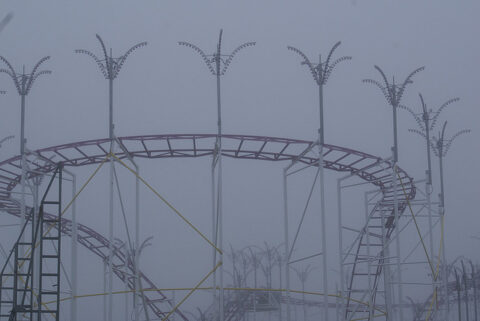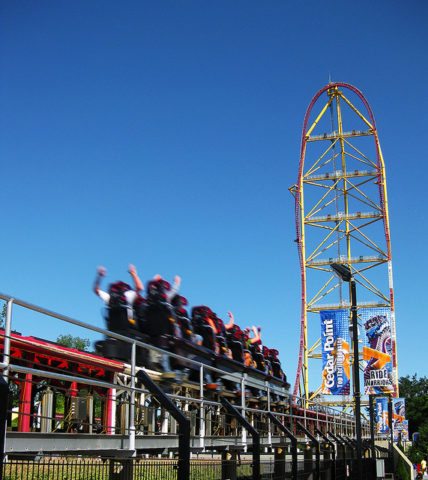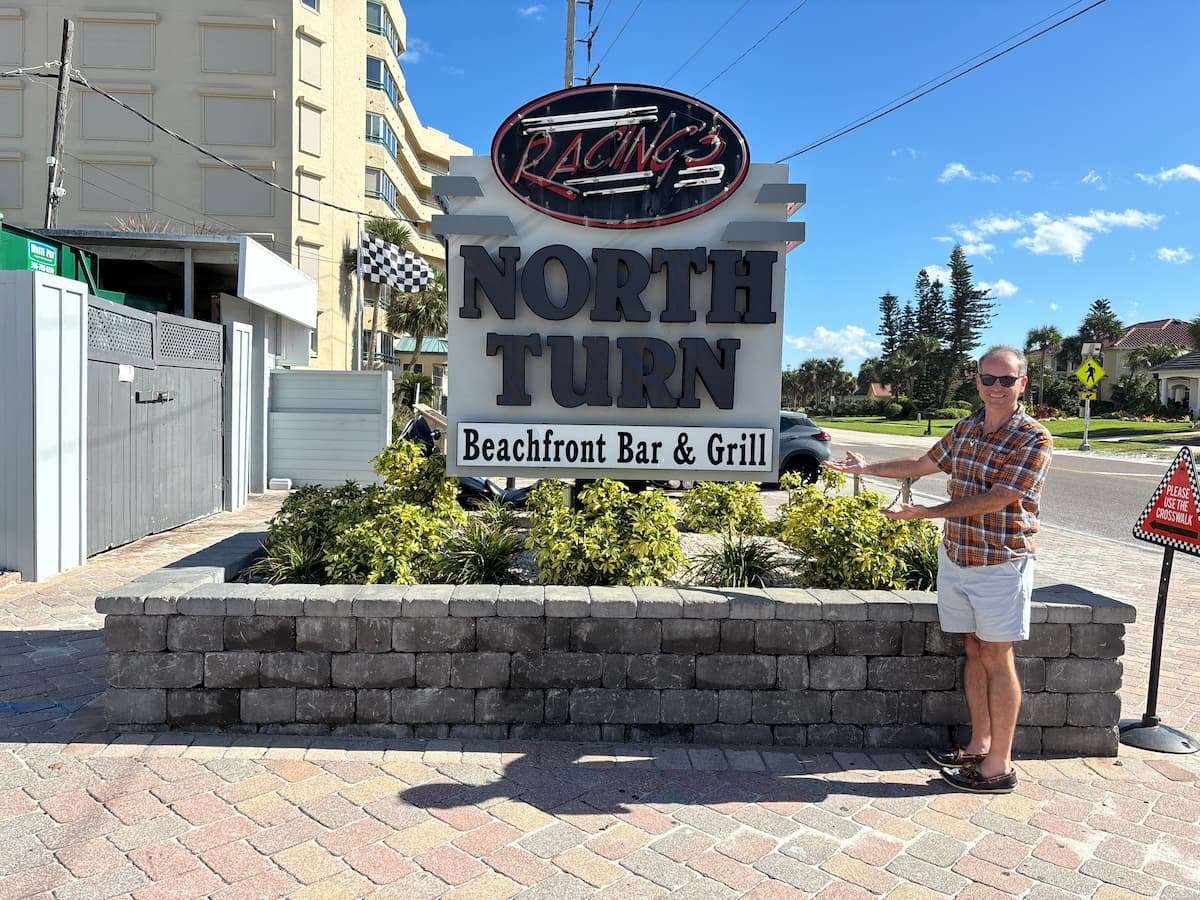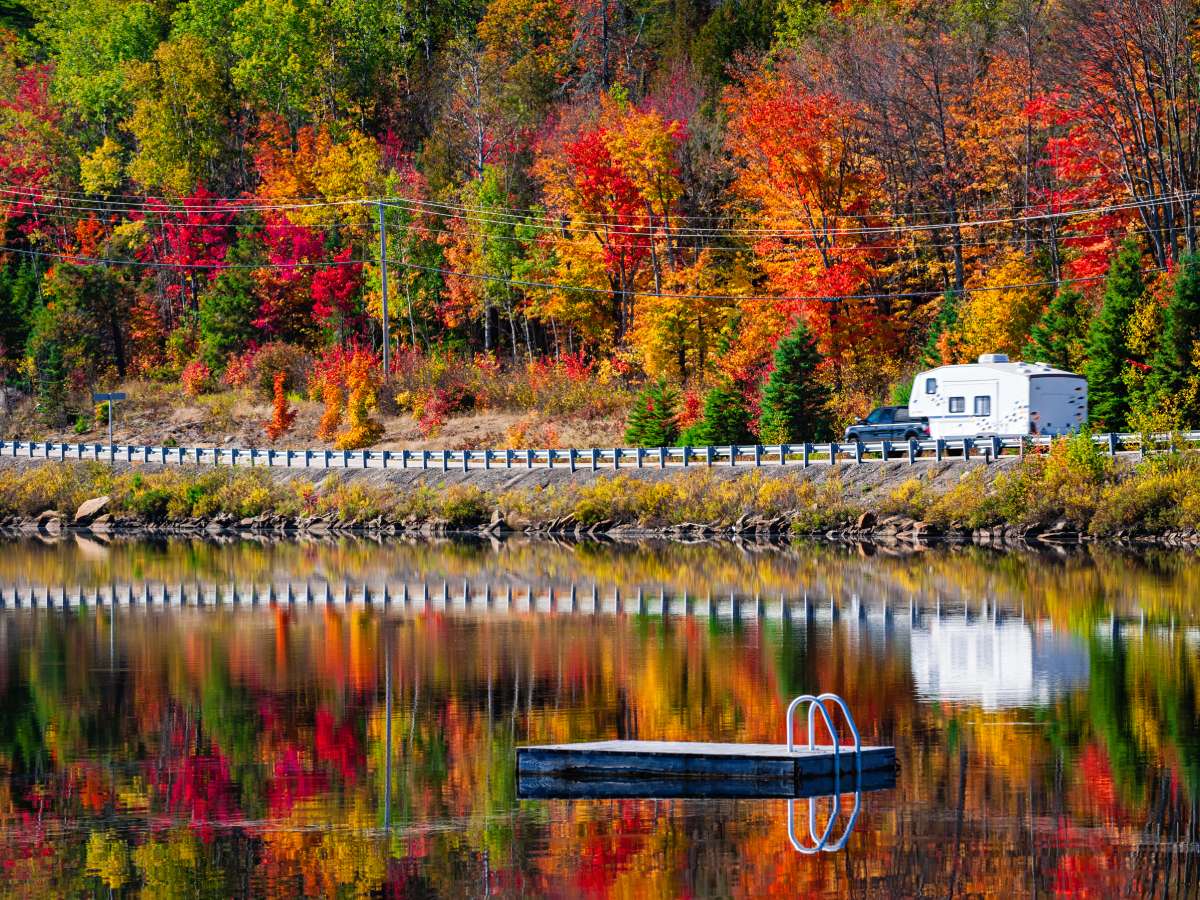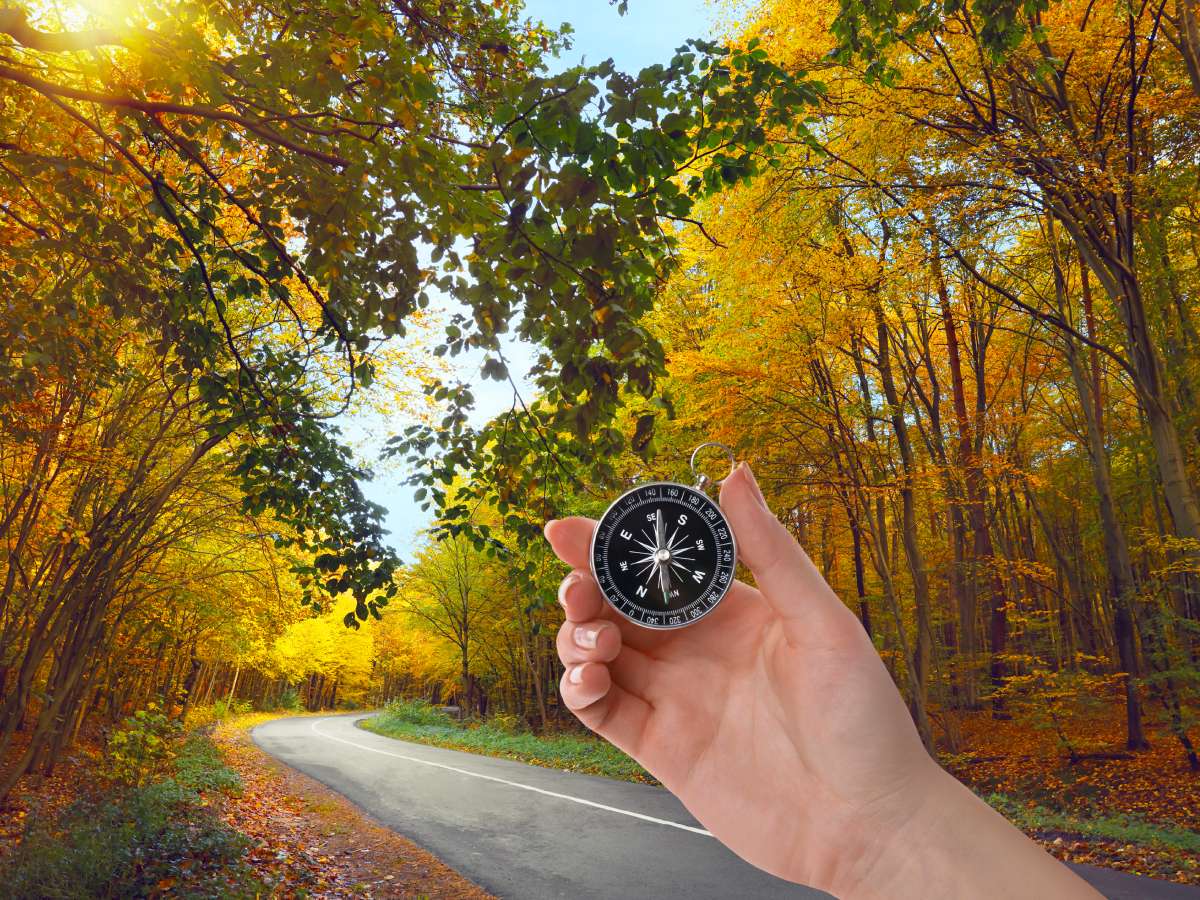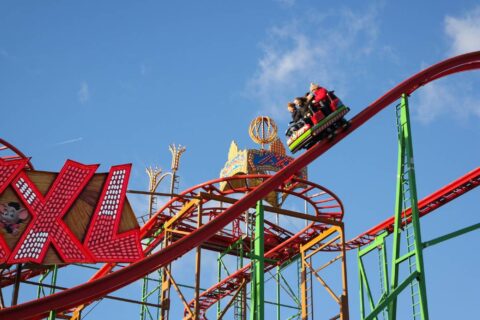
If you’ve ever visited a theme park during cold weather, you may have wondered why some or all of the roller coasters were temporarily closed during the chill.
I worked at a theme park in Central Florida and learned all about this situation first-hand.
Even here in the “Sunshine State,” there were several winter mornings during which the park would not operate some of the coasters because the temperatures were under 40 degrees Fahrenheit — a common temperature threshold under which operating a roller coaster is not a good idea.
As ironic as it sounds, cold weather roller coaster closures aren’t as big of a problem in places north of Florida’s latitude.
That’s because theme parks throughout most of the United States are open only seasonally during the warmest months of the year — typically April through September.
When northern theme parks are open during the colder months, such as for Christmas, typically only a limited number of rides and attractions are operating.
Why Do Roller Coasters Close In Cold Weather?
A lot of people not privy to the mechanical functions of rides sometimes think that not running roller coasters on cold mornings is some kind of a cost-cutting measure for the park or something like that.
But that’s not true in the least. After all, why would a theme park not want to operate its headlining roller coasters? The last thing theme park management wants to do is disappoint its guests by closing its top roller coasters.
So, what’s up with the cold weather roller coaster closures?
Well, it has nothing to do with people complaining about the cold air stinging their faces as they hurtle through a vertical loop at 60 miles per hour.
Believe me… I’ve ridden lots of roller coasters when they were operating just above the minimum temperature threshold. Boy, was that a cold experience!
Rather, the cold weather closures have to do with the performance of the roller coasters themselves.
What Could Happen To A Coaster Running During Cold Weather?
- Roller coasters, especially steel roller coasters, run more slowly when temperatures start getting into the 40s — because cold weather increases friction in the wheels.
- Cold weather also causes the track and other ride components to shrink slightly, which could lead to serious operating issues with the roller coaster.
- Another major concern has to do with brake hydraulic fluid, which, if too cold, could cause the brakes to malfunction. Again, something you don’t want to experience while riding a roller coaster.
- Also, lubricants, such as grease on the track (common with wooden roller coasters) and wheels, may not warm up enough before or during operation, potentially causing moving parts of the ride to seize up or otherwise improperly function.
- Most roller coasters are run by computer technology, and even that could fail when temperatures fall under 40 or so degrees.
Rollbacks Are Also Common In Cold Weather
What’s a rollback?
A rollback occurs when a roller coaster has failed to reach a high enough speed to clear a hill, loop, or other vertical element.
When this happens, the roller coaster train will roll back to the lowest point of track between the highest element immediately ahead of and behind the train.
Rollbacks are most common (though still relatively rare) on launched roller coasters such as Kingda Ka at Six Flags Great Adventure in Jackson, New Jersey and Top Thrill Dragster at Cedar Point in Sandusky, Ohio.
Many roller coaster enthusiasts would love to be on a roller coaster that rolls back — it’s a rare phenomenon that usually gives the rider a bit of street cred! (I still haven’t personally experienced a roller coaster rollback — though I’ve seen them happen in person.)
Rollbacks are physically safe for riders since coasters these days are designed to handle these ride errors — especially in the case of launching roller coasters.
Still, theme parks don’t want to take any chances and will avoid operating roller coasters when the likelihood of a rollback is high due to cold weather or other situations, such as during strong winds.
Many modern roller coasters, which are pretty much fully controlled by computers, will not even allow operators to run them when temperatures get below 35 to 40 degrees.
So, in other words, roller coasters close during cold weather for your safety and to help preserve the physical integrity of the ride.
However, if you want to avoid the disappointment that surely comes when your favorite roller coasters are closed for wintery weather, it’s best to double check weather forecasts ahead of your trip and plan alternative things to do in case the chills are too deep for the thrills.
Other Weather Conditions That Affect Coaster Rides
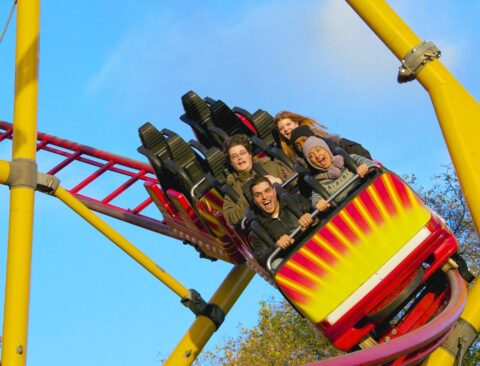
Cold weather isn’t the only thing that could put a damper on your fun day spent riding roller coasters.
Other weather conditions that may cause roller coasters to close include:
- Wind – which can cause trains to decelerate too quickly, especially in winds over 30 mph
- Rain – light rain is usually okay, but heavy rains could affect the sensors and possibly cause the brakes to malfunction
- Lightning – the tracks can become lightning rods, which is why coasters typically close whenever lightning is within 5-10 miles of the park
Amusement parks have to keep tens of thousands of people safe from weather emergencies every day. To do so, many of them have top notch meteorology equipment and staff to track the weather concerns. The National Weather Service has several amusement parks across the nation that qualify for its Stormready certification. That means they’re equipped to monitor the latest weather patterns and react quickly to keep their visitors safe.
~The Weather Channel

